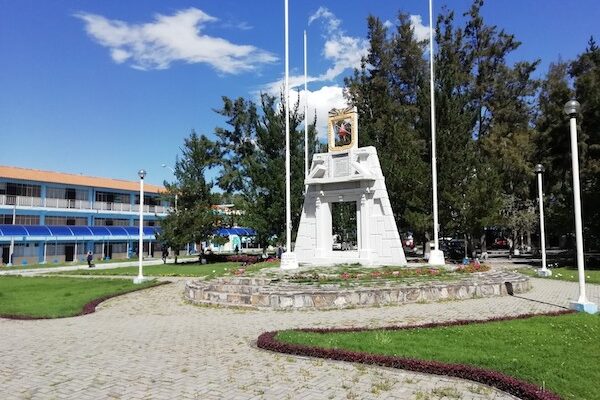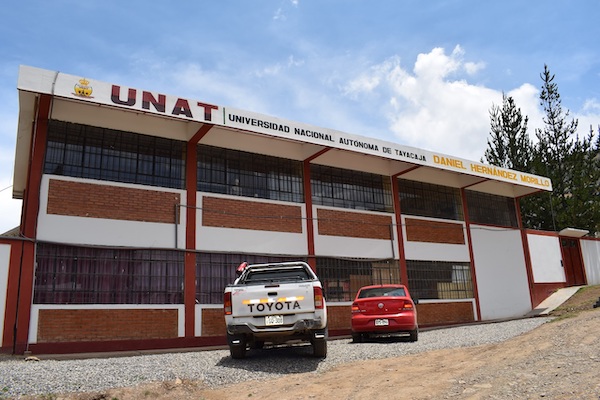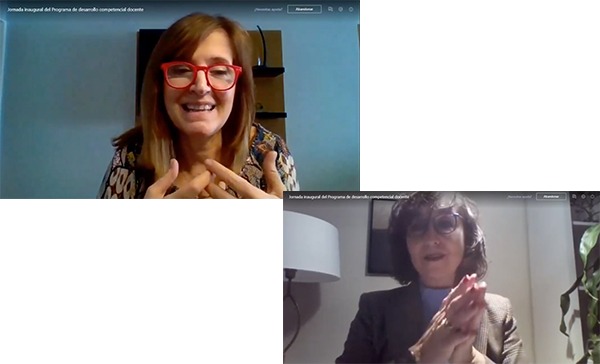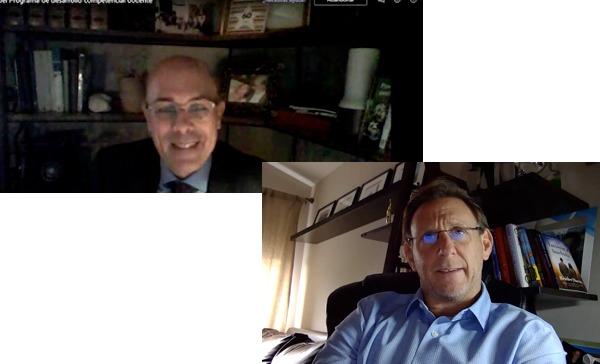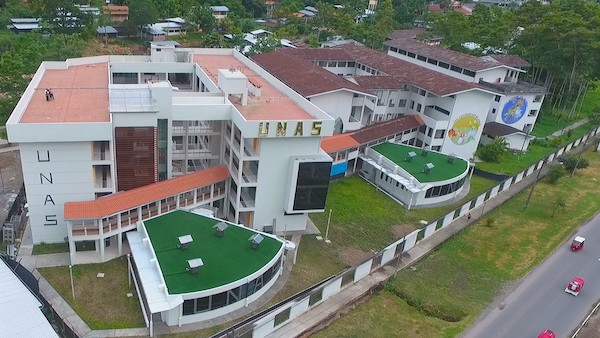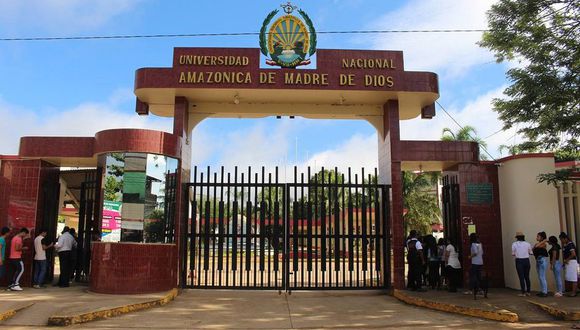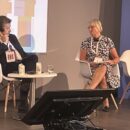“The greatest challenge for teachers is to continue to acquire the necessary digital skills for the benefit of our students”
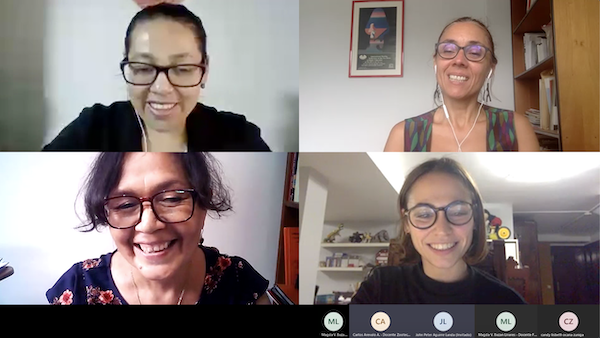
It is Tuesday, November 10 and Professor Carlos Arévalo from the Universidad Nacional Agraria de la Selva (National Agrarian University of the Jungle) is connecting from his mobile device. Waiting for him at the session are the rest of his colleagues who are also participating in the Program for the Development of Skills for Non-Face to face Teaching-Learning Environments in Emergency Situations (COVID-19) who have been summoned to talk about their experience in the program.
The first big challenge is to manage for everyone to get connected without any problems. “The geography of the region is very diverse and we have communities 10 km from the city that have no Internet signal due to geography,” explains John Peter Aguirre Landa, a professor at the Universidad Nacional José María Arguedas (UNAJMA), located in the Apurímac region of Peru. This problem has had a major impact on students, who have more difficulties than teachers when it comes to connecting to the Internet. As a result, teachers are aware that they must adapt to the conditions in which students find themselves and be more empathetic with their circumstances.
The situation in Peru has been particularly critical, being one of the countries in the world with the highest mortality rate per 100,000 inhabitants. “We had to face the beginning of the virtual classes, first struggling to keep our colleagues from dying, since many of us were infected. And in the midst of these circumstances, we had to continue working without the necessary tools for non-face-to-face education,” says Magda Verónica Bazán, professor at the Universidad Nacional Agraria de la Selva (UNAS).
The challenge they faced was not only to teach classes in front of a screen, but to develop the digital skills needed to offer a complete and quality education. “We needed not only technical help, but also didactic help, to know how to reach the student,” confesses Bazán.
How do I improve writing? How do I generate discussion? How do I increase this digital communication? These were some of the questions that the professors of the National University of Jaen (UNJ) asked themselves.
“This kind of education took us all out of the comfort of face-to-face classes and forced us to migrate into a new kind of education that was totally new to us. At that time we didn’t have those digital skills to establish good communication or to manage information with the student, and it was a great challenge as a university to move forwards, “says Candy Ocaña, a teacher at UNJ.
In this context, the teachers have become part of the Program for the Development of Skills for Non-Face to face Teaching-Learning Environments in Emergency Situations (COVID-19).
“The course is strengthening our digital skills. It is providing us with resources such as the use of forums, which is being very useful for creating discussions among students. These tools are making communication with our students easier”, explains Ruth Torren, professor at the Universidad Nacional Autónoma Madre de Dios (UNAMAD).
Another aspect highlighted by teacher Candy Ocaña is that the course is helping teachers to provide feedback to each other in such a way that they can somehow contribute to change their way of thinking and of conceiving their classes.
The reception of the course has been difficult in some cases. “We have had teachers who are reluctant to continue the next cycle, because they see that they do not handle these tools very well and that their use is complicated for them” says Professor Arévalo. He also perceives that the training offered by the program is a great opportunity to change once the fear of digital has been overcome. “Everything we are learning is very interesting, we must share it with colleagues and make them see the great advantage”, says the UNAS teacher.
The teachers are aware that the normality of the past will not return, and that technology is here to stay. From there, they all assume that training and updating in digital skills will be constant. “One of the most important challenges facing UNJ teachers is to continue acquiring the necessary digital skills and competencies to make our work easier. To continue learning constantly for the benefit of our students,” says Ocaña.
RELATED ITEMS
